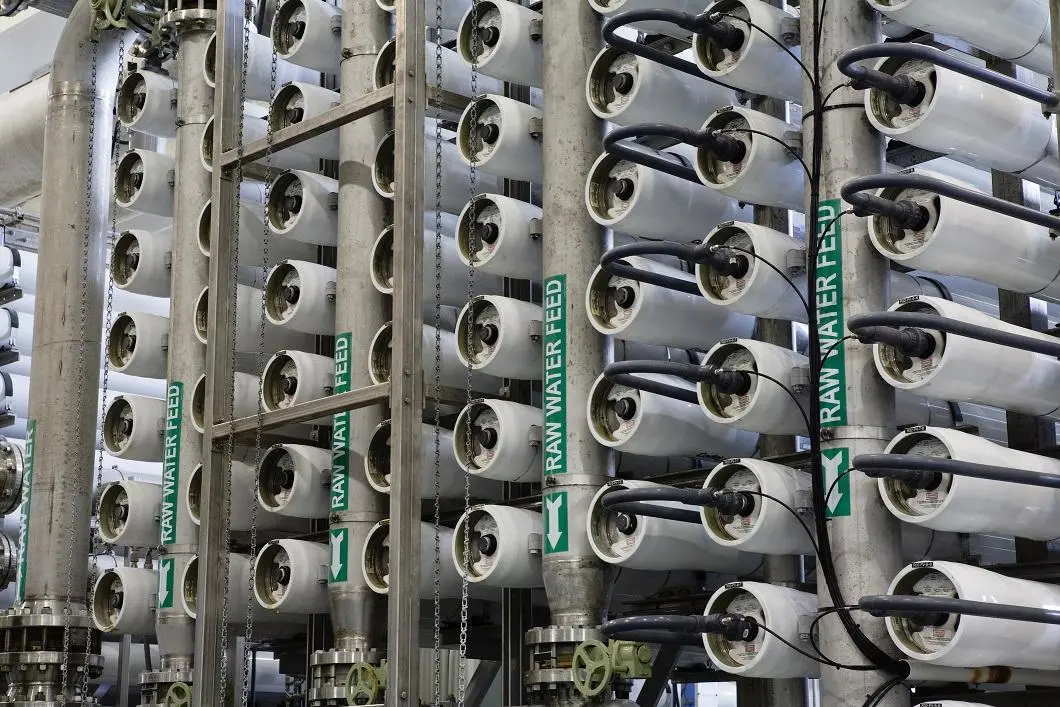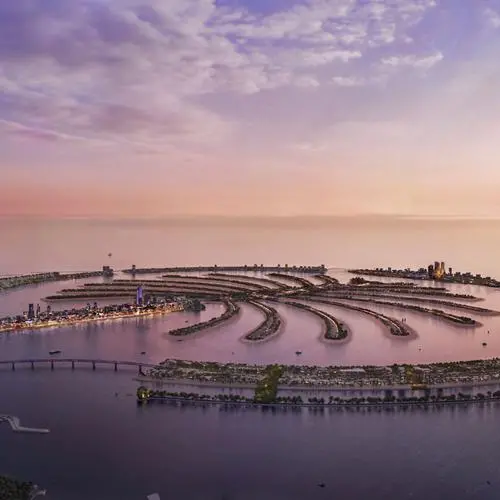PHOTO
Renewable energy-based desalination technologies could generate annual savings of up to $550 million, Chairman of the Abu Dhabi Department of Energy (DoE) has said.
Awaidha Murshed Ali Al Marar said during an online forum that future water desalination programmes should test new renewables-based reverse osmosis (RO) and forward osmosis desalination technologies.
"They are expected to be 75 percent more energy efficient and could deliver annual savings of $550 million," he said speaking at the Abu Dhabi Sustainability Summit on Tuesday on the topic "Making water more sustainable".
"Globally water demand is increasing by one percent every year. By improving water management and water production efficiency we can improve resilience to climate change and maximise the efficient supply of portable water," he said.
Giving an overview of the water sector, he said, "Abu Dhabi's water supply mix is made up to 60 percent ground water, 30 percent desalinated water and 10 percent recycled water. Only 21 percent of the ground water reserves are directly usable, of which three percent fresh water is conserved as strategic reserves".
He said the UAE produces 14 percent of the world's desalinated water and is the world's second largest producer of desalinated water after Saudi Arabia. "All of UAE's potable water, around 42 percent of the country's total water requirement, is met through desalinated water and over 85 percent of desalination in Abu Dhabi remains thermal", he said.
Currently four desalination plants in Abu Dhabi use RO technology and account for 16 percent of the desalinated water, he said, adding, "this share is expected to go up to 30 percent when the new RO plant at Al Tawaleeh Power and Water Complex comes onstream".
While desalination continues to be the main stay to meet future water demand, capitalising on innovative desalination technology, brine reduction technology and new water demand management strategy could reduce the environmental footprint, he said.
Additionally, government-led initiatives to reduce per capita water use and rationalise water demand through waste-water reuse, reduction of consumption, improving water use efficiency in irrigation and minimizing public water supply could improve sustainability of the water sector, he said.
The water stress challenge in the UAE is intensified with its nexus with food and energy, he said.
"The nexus between water, food and energy in terms of production and consumption should be seen as an opportunity to drive sustainability by integrating the management of the three sectors. Applying the nexus approach while strategizing for energy, food and water will improve water security and accelerate the transition to a green economy", he said.
(Reporting by Sowmya Sundar; Editing by Anoop Menon)
(anoop.menon@refinitiv.com)
Disclaimer: This article is provided for informational purposes only. The content does not provide tax, legal or investment advice or opinion regarding the suitability, value or profitability of any particular security, portfolio or investment strategy. Read our full disclaimer policy here.
© ZAWYA 2021





















